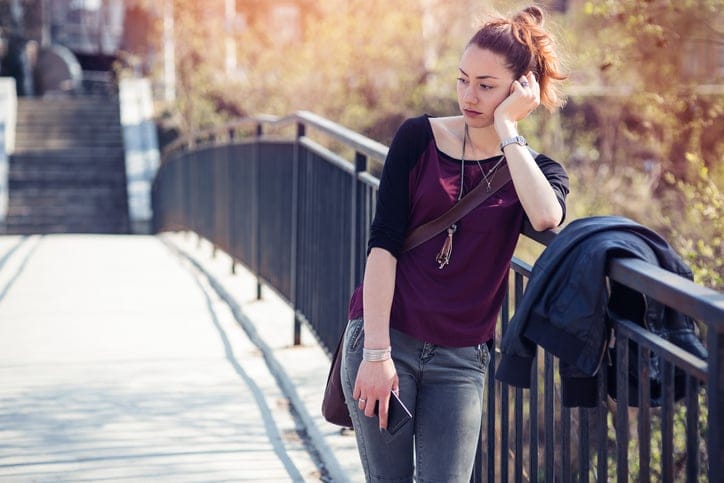If you get anxious when the leaves start changing colors and start feeling a little off as the days get shorter, you’re not alone. Seasonal affective disorder is so common, you’re more likely to experience it than not. Although the seasons changing can’t be avoided, if you don’t take care of yourself or treat your SAD, things can get pretty dire.
- SAD can make your anxiety skyrocket or create anxiety that you normally don’t have. Anxiety can affect your work, your friendships, your relationships and your mindset, so it’s not something to take lightly. Some people who suffer from SAD only experience anxiety (or experience it a lot worse) during the late fall/winter months.
- You might suffer from depression during this time of the year, even if you usually don’t. It can be difficult to seek treatment for depression from SAD because so many people appear happier during the holidays. Depression can affect everyone differently but it has many detrimental effects across the board.
- You might miss out on the beauty that comes with these seasons because SAD can make you want to stay inside. Although the days start getting shorter and the temperatures continue to drop as fall becomes winter, there are still plenty of things to do outside. Being cooped up in your house can cause anyone to go stir-crazy, and I find that getting fresh air clears my mind and helps me relax. Plus, there’s something about being outside that recharges you and gives you more energy and positivity. If you let SAD keep you from spending time outside, you’ll miss out on the leaves changing colors and the snowflakes landing in your hair.
- Your loved ones become pretty worried about you. Seasonal affective disorder can make you want to stay in bed all day and avoid communicating with anyone, but isolating yourself isn’t going to make you feel any better. We all need alone time, but too much alone time can be detrimental to your mental health. Retreating from the world will make your friends and family worried about you. Making the effort to stay connected (even when it seems like the last thing you want to do) will definitely improve how you’re feeling overall.
- The holidays will be more stressful than enjoyable. If you do feel the effects of SAD, the holidays may cause you more stress than happiness, which is not what holidays should do! There are so many fun and happy holidays this time of the year, and SAD can cause you to feel anxious and want to avoid them.
- You may lose or gain weight because of SAD. A side effect of anxiety and depression is often weight loss or weight gain, depending if you tend to stress-eat or not eat enough when you’re stressed. Of course, the winter is known for adding extra pounds to your body anyway, but if you have SAD, changes in your weight are more likely.
- You might lash out at your loved ones, especially if they express their concern for your well-being. Sometimes with SAD, you can feel emotionally unstable and therefore treat the people who you care about (and who care about you) badly. If this happens, just apologize and explain what is going on, otherwise, they may not understand why you’re acting a certain way.
- You may feel unable to take care of yourself emotionally and physically. When seasonal affective disorder hits, it can feel impossible to take care of yourself both mentally and physically. Fight through those feelings and make sure that you’re eating enough nutrients, drinking enough water, getting enough sleep (but not oversleeping, either), exercising, and talking through the negative thoughts you might be thinking at this time of the year.
- Your performance at work may suffer. SAD can make it feel impossible to concentrate on anything, including and especially at work. You may want to talk to your boss and let them know what’s going on so they at least have an understanding of why you may be slightly underperforming.
- You might not be able to control how you feel. But remember that you can always control how you react to your feelings. You may be unable to avoid feeling disconnected, lonely and sad as the seasons change, but you can control how you respond to those feelings. It takes practice, time and maybe even professional help to teach yourself positive reactions to negative feelings, but the more that you actively try, the easier it becomes. Your reactions and responses can make an impact on your mood and your entire life.



